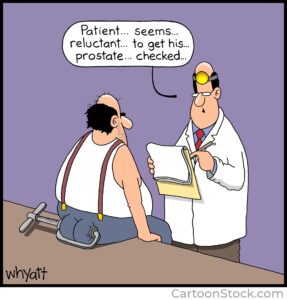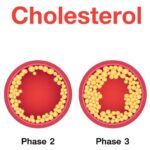Prostate cancer is a type of cancer that develops in the prostate gland, which is a small gland located just below the bladder in men. The prostate gland produces a fluid that combines with sperm to form semen.
In the previous article, we had a general overview of the prostate gland and its relevance in the male reproductive system. If you have missed that article, click here to check it out.
In this article, we look specifically at prostate cancer; a subject that all men need to take seriously since only men can ever get cancer of the prostate.
As is typical of all cancers, Prostate cancer begins when cells in the prostate gland start to grow uncontrollably. Over time, these abnormal cells form a tumor. This tumour is usually slow-growing, and in many cases may not cause noticeable symptoms or health problems. This is why it is important to screen rather than wait for symptoms. In some cases, however, it can be more aggressive and spread to other parts of the body.
Causes
We cannot tell what causes prostate cancer, but various factors contribute to its development. These risk factors include:
Age:
Prostate cancer is more common in older men, with the risk increasing significantly after age 50. It is rare in men younger than 40.
Family History:
A family history can increase the risk. If a close relative, such as a father or brother, has had prostate cancer, your risk may be higher.
Genetics:
Some genetic mutations and inherited gene changes, such as mutations in the BRCA1 and BRCA2 genes, have been linked to an increased risk of prostate cancer.
Race/Ethnicity:
Prostate cancer occurs more frequently in black men and in Caribbean men of African ancestry. It is less common in Asians and Hispanic/Latino men.
Diet:
There is some evidence that a diet high in red meat and high-fat dairy products and low in fruits and vegetables may increase the risk of prostate cancer. However, more research is needed in this area.
Obesity:
Some studies suggest that obese men may have a higher risk of developing aggressive forms of prostate cancer.
Common symptoms of prostate cancer may include:
- Frequent urination, especially at night.
- Difficulty starting or stopping urination.
- Weak or interrupted urine flow.
- Blood in the urine or semen.
- Pain or discomfort in the pelvic area.
- Bone pain, if the cancer has spread to the bones.
It’s important to note that these symptoms can also be caused by non-cancerous conditions like an enlarged prostate (benign prostatic hyperplasia).
Early detection is crucial for successful treatment. Screening involves a blood test to detect a molecule called prostate-specific antigen (PSA), produced by parts of the prostate gland, and a digital rectal exam (DRE) to check for any abnormalities in the prostate gland.
 A PSA test alone is not a good enough test to screen for prostate cancer. It is important that a DRE as well as a prostate scan is done to rule out a non-PSA-producing tumour.
A PSA test alone is not a good enough test to screen for prostate cancer. It is important that a DRE as well as a prostate scan is done to rule out a non-PSA-producing tumour.
If prostate cancer is suspected based on these tests, further diagnostic procedures such as a biopsy may be recommended to confirm the diagnosis.
Treatment options for prostate cancer depend on various factors, including the stage of cancer, the patient’s age and overall health, and personal preferences. Treatment options may include surgery, radiation therapy, hormone therapy, chemotherapy, immunotherapy, or a combination of these approaches. The choice of treatment is typically made after careful consideration and discussion between the patient and their healthcare team.
Preventive measures against prostate cancer include choosing a healthy diet of more fruits and vegetables and less red meat; more physical activity to help maintain a healthy weight and a regular prostate screening routine starting from the age of 40.







